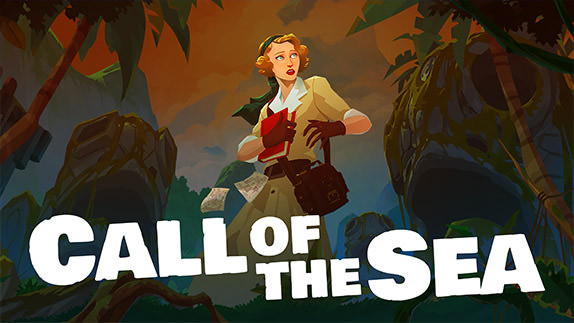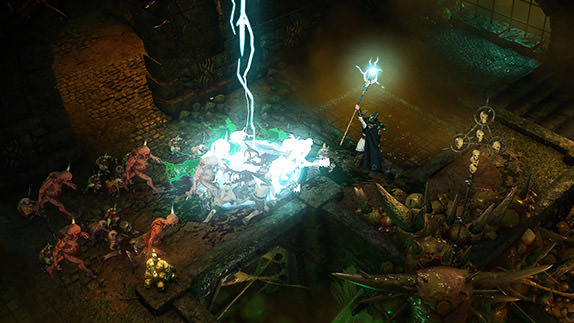The Bard's Tale IV: Barrows Deep Review

 By Marcus Jones
Posted on September 18, 2018
By Marcus Jones
Posted on September 18, 2018
Fans of the series may remember the spin-off title The Bard's Tale in 2004, but most recently the last major game in the series released in the mid-to-late 80s. The Bard's Tale IV: Barrows Deep seeks to continue the story and world established back in the 80s. Skara Brae's destruction and subsequent rebuilding have given rise to a new breed of fanatics in the form of the Fatherite religion and its zealots, new brewing tensions, and of course another need for a hero and his companions to save the world...again.
Admittedly, I've never played any of the previous games in the series (they are a little before my time). However, considering the praise and accolades the series garnered back in its heyday, it makes sense to see the title come back to life in what's arguably a massive resurgence of western role-playing games (RPGs). The game picks up where the last title left off, but don't fret if you've never played them. The game doesn't place expectation upon the player to know the lore, and it helps ease you in with the "new" world you're coming into; so much has changed in the intervening 100 years that it's not even hard to drop right in.
The game is played entirely from the first-person perspective. Exploration, combat, dialogue, you name it. You'll never leave that view, giving you the opportunity to "make the experience yours" as you progress through the game. Players are also given a chance to create their own character or use the pre-established one from the tutorial. Creating your character gives you the opportunity to try one of the four main class types: bard, rogue, fighter, practitioner (mage), in an absolute variety of races. There's a vast set of options in how you create your character, as well as future available avenues of skills to learn and grow into. It's fantastic for those that want to experience some variety in the game and offer themselves some replayability. Additionally, the races do vary in how you approach the game with their own set of racial bonuses. There's your typical human/dwarf/elf setup, but these groups don't look like the expected Tolkien versions most know and recognize.
Even with the tutorial, it took me a few battles to understand the combat system and switching between my party characters. However, once learned, I found I thoroughly enjoyed the system once understood. Since the game is entirely first-person, combat consisted of your party "out of view" while you managed them against enemies in the foreground. The turn-based structure combined with the small 4x4 grid made it both a challenge and fun to take on enemies. Each group turn, there are a number of actions that can occur (you initially start with three with the ability to gain more later). Your turn is spent positioning your characters and attacking enemies with your limited actions and then letting them do the same. Some attacks require charging phases, which can be interrupted by either killing the unit or using specialized attacks. Taking out an enemy's units reduces their ability to harm you and vice versa for them. However, don't fret if you lose a party member mid-battle since they will return with 25% health after the fight if you survive. From there, it's a simple matter of healing them.
Exploration is probably one of the best aspects of the game. While running around, there are puzzles to complete, hidden paths to explore, and people to interact with. Not only does this help flesh out some of the world, but it offers numerous chances to expand your abilities with new items and quests to undertake. These efforts go directly into your leveling and skill sets. Each level grants a single skill point which can be used across different areas. Spending enough skill points opens the next tier of available options, further making your group a set of badasses. Be sure to plan accordingly; some enemies require not only enough party members, but solid skills and skill level to take on. I've found myself in situations where winning just wasn't possible without some revisiting a prior save on my part.
Being The Bard's Tale, I need to point out the importance of sounds, voice acting, music and ambient music throughout the game. Players will notice the living menu, a full motion video recapping events in your game and more through a bard's storytelling. Aside from that, the game and music overall are steeped in Celtic/Gaelic culture. Not only are the voice actors pulled from the Celtic regions of Britain, Ireland, and Scotland, but much of the music is traditional Celtic, Gaelic, and Scottish in nature. It's incredible to hear it throughout the game, and I honestly hope players keep their ears open to listen to it as well.
My only real chief issue with the game was the stuttering I ran into frequently. I don't know if it was the rendering of the large map spaces, but I'd often hit stuttering issues within the game. They'd only last a second or two at most, but turning too fast or running into "new" areas (the map areas were all one giant piece) would cause the weird stuttering to occur. It caught me off guard given my PC build, but it could also just be from the current build of the game, which I'd expect to be an easy fix.
Simply Put
The Bard's Tale IV: Barrows Deep is a surprisingly deep and rich role-playing game steeped in some old lore. It has some big shoes to fill given the history of the series, and while I'm not familiar with it, I enjoyed what I played. Aside from the stuttering and short learning curve, I was impressed by the game and its overall gameplay. Although, even the learning curve is softened immensely by the excellent tutorial. I'm itching to try more and more of the game and see just what Skara Brae has to offer, and I suggest others do the same.
Note: The Bard's Tale IV: Barrows Deep was reviewed on PC. A digital copy of the game was provided by the publisher/developer.




